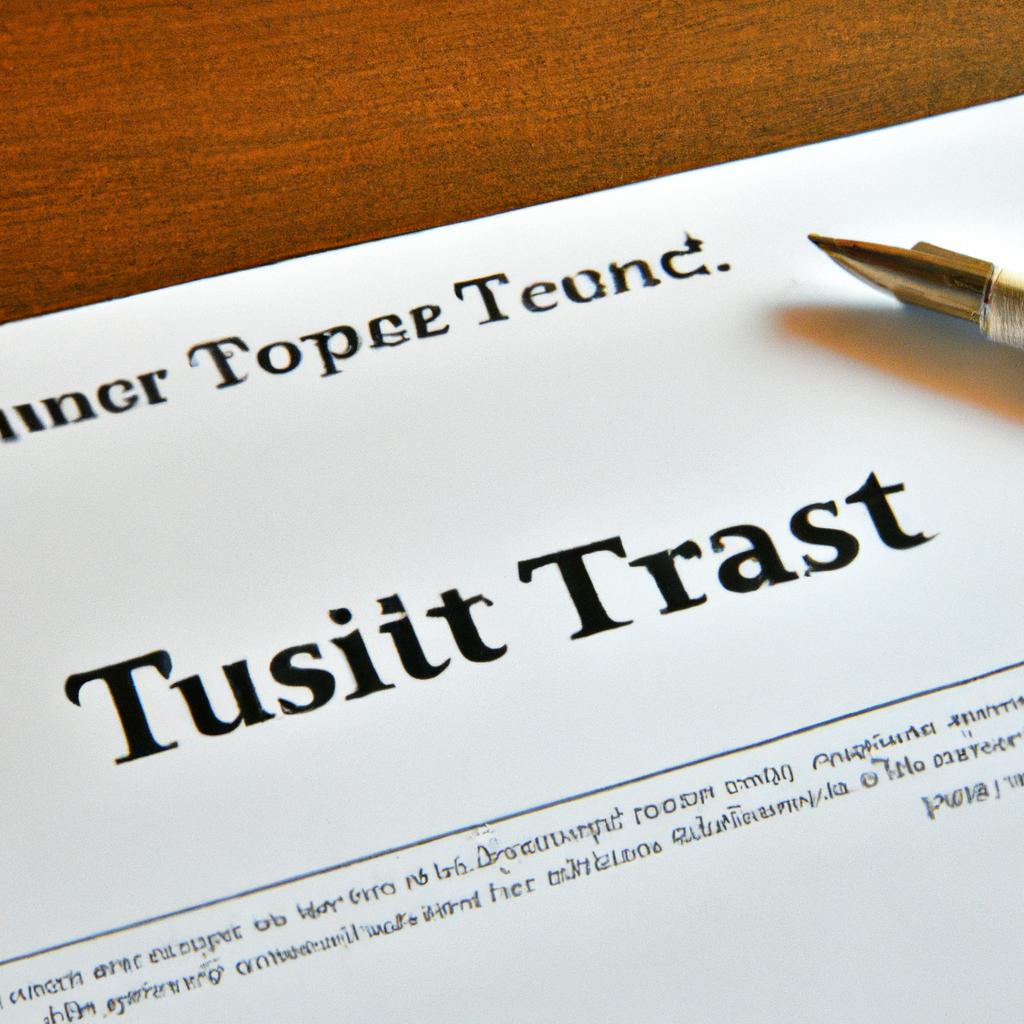In the intricate web of legal obligations that govern our daily lives, trust contracts stand as stalwart guardians of one’s assets and intentions. As experienced practitioners at Morgan Legal Group, located in the bustling heart of New York City, we specialize in crafting these essential instruments with precision and care. Join us as we delve into the nuances of trust contracts and explore their crucial role in estate planning, probate, elder law, and the seamless transfer of wealth through Wills and trusts.
Understanding the Foundations of a Trust Contract
When entering into a trust contract, it is crucial to understand the foundational principles that govern this legal agreement. A trust is a fiduciary relationship where a trustee holds assets on behalf of beneficiaries. The trust contract outlines the terms and conditions under which the trustee manages and distributes these assets. Understanding the key components of a trust contract is essential for ensuring that the trust operates smoothly and fulfills the intentions of the trust creator.
One of the key elements of a trust contract is the identification of the parties involved. This includes the trust creator, also known as the settlor or grantor, who establishes the trust and transfers assets into it. The trustee is appointed to manage these assets, while the beneficiaries are the individuals or entities who will benefit from the trust. Additionally, the trust contract must clearly outline the purposes of the trust, the powers and duties of the trustee, and the distribution of assets to the beneficiaries. By understanding these foundational principles, individuals can create a trust contract that meets their specific needs and goals.

Key Components and Essential Provisions to Include in a Trust Contract
When creating a trust contract, it is crucial to include the following key components to ensure the trust operates smoothly and effectively:
- Trust Property: Clearly define the assets that will be held in the trust, including real estate, investments, and personal property.
- Trustee: Designate a trustworthy individual or institution to manage the trust and carry out the wishes of the grantor.
- Beneficiaries: Identify the individuals or organizations who will benefit from the trust, along with any specific provisions for distribution.
Additionally, it is essential to include certain provisions in the trust contract to address various scenarios and protect the interests of all parties involved:
- Revocability: Specify whether the trust is revocable or irrevocable, and under what circumstances it can be modified or terminated.
- Trust Purpose: Clearly state the purpose of the trust and the intentions of the grantor in establishing it.
- Successor Trustee: Name an alternate trustee to take over in case the original trustee is unable to fulfill their duties.

Maximizing the Benefits of a Trust Contract in Estate Planning
When it comes to estate planning, utilizing a trust contract can provide numerous benefits for both the grantor and beneficiaries. By structuring assets within a trust, individuals can protect their wealth, avoid probate, minimize estate taxes, and maintain privacy in the distribution of their assets. To fully maximize the advantages of a trust contract, it is important to carefully consider the key factors that can impact its effectiveness.
One crucial aspect to consider is the selection of trustees and beneficiaries. Choosing trustworthy and competent individuals to oversee the administration of the trust is essential in ensuring that the grantor’s wishes are carried out effectively. Additionally, clearly outlining the terms and conditions of the trust contract, including distribution guidelines and provisions for unforeseen circumstances, can help prevent disputes and confusion among beneficiaries. By taking a proactive approach to estate planning and utilizing a well-structured trust contract, individuals can secure their legacy and provide financial security for their loved ones for generations to come.

Important Considerations When Selecting Trustees for a Trust Contract
When selecting trustees for a trust contract, there are several important considerations to keep in mind to ensure the smooth administration of the trust. The trustees play a crucial role in managing the trust assets and carrying out the wishes of the grantor. It is essential to choose trustees who are reliable, responsible, and capable of handling the responsibilities that come with being a trustee.
<p>One important consideration is to select trustees who have a good understanding of financial matters and are able to make sound investment decisions. Trustees should also have good communication skills and be able to work well with all beneficiaries of the trust. Additionally, it is advisable to choose trustees who are trustworthy and have a good track record of honesty and integrity. By carefully considering these factors, you can help ensure that your trust is properly administered and that the interests of the beneficiaries are protected.</p>
Q&A
Q: What is a trust contract?
A: A trust contract is a legally binding agreement between a trustee and a beneficiary, where the trustee holds assets on behalf of the beneficiary and manages them according to the terms outlined in the contract.
Q: How does a trust contract work?
A: The trustee, who is typically a financial institution or individual with expertise in managing assets, is responsible for safeguarding the assets in the trust and making decisions on how to invest or distribute them to the beneficiary based on the instructions in the contract.
Q: What are the benefits of having a trust contract?
A: Trust contracts offer a way to protect and manage assets for future generations, provide for loved ones who may not be able to manage their own finances, and minimize estate taxes. They also ensure that assets are administered according to the wishes of the grantor.
Q: Are there different types of trust contracts?
A: Yes, there are several types of trust contracts, including revocable trusts, irrevocable trusts, living trusts, and testamentary trusts. Each type has its own set of rules and benefits, depending on the needs and circumstances of the grantor and beneficiaries.
Q: How can someone create a trust contract?
A: To create a trust contract, an individual must work with a legal professional or financial advisor to draft the terms and conditions of the trust, name a trustee, and transfer assets into the trust. The contract must be signed and notarized to make it legally binding.
Insights and Conclusions
In conclusion, trust contracts offer a unique and powerful way to solidify agreements and relationships. By clearly outlining expectations and responsibilities, trust contracts can help prevent misunderstandings and build trust between parties. Whether used in business dealings, personal relationships, or legal agreements, trust contracts provide a foundation upon which strong and lasting connections can be built. So, next time you find yourself entering into a new agreement, consider the power of a trust contract to help ensure a smooth and successful outcome. Trust – it’s not just a word, it’s a contract.

